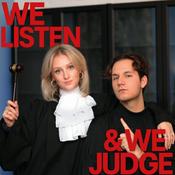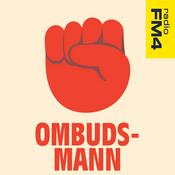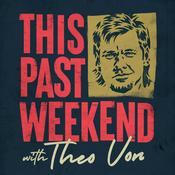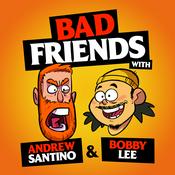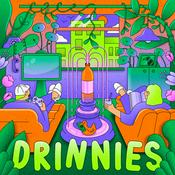Verfügbare Folgen
5 von 67
- Adam Smith Episode 7: The Errors of Mercantilism--Bullion, Balances, and BountiesSend us a textTracing out Adam Smith’s Book IV, chapters 1–6, to show how mercantilism mistakes money for wealth, how protection creates monopolies at home, and why free exchange raises real prosperity. Smith defends two narrow exceptions—defense and tax parity—while rejecting bounties and politicized treaties that entangle trade with war.• mercantile vs physiocratic systems and their influence• wealth as goods and industry, not specie• balance of trade as a “pestilent error”• make-or-buy logic and misallocation from tariffs• invisible hand clarified and limited• natural vs acquired advantages in specialization• two exceptions: national defense and tax parity on imports• drawbacks as refunds vs bounties as subsidies• corn bounties, higher home prices, cheaper foreign prices• specie hoards as dams that inevitably overflow• treaties of commerce, Methuen example, political risk• case for unilateral free trade over reciprocityMentioned in the podcast:Laura Williams on PineapplesPineapples in SwedenOren Cass on Adam SmithDan Klein's Law and Liberty piece on Oren Cass on Adam SmithIf you have questions or comments, or want to suggest a future topic, email the show at [email protected] ! You can follow Mike Munger on Twitter at @mungowitz--------1:15:04
- Adam Smith's Wealth of Nations Episode 6--Division of LandSend us a textWe trace how Adam Smith solves a historical puzzle: why Europe’s path to prosperity inverted the “natural order,” and how commerce quietly dissolved feudal power to make room for liberty. The story follows incentives, from primogeniture and entail to charters, free towns, and the market’s “silent and insensible” revolution.institutions as congealed preferences and elite incentiveswhy Smith’s natural order inverts in Europethe physiocrats’ growth model and Smith’s critiqueSolow’s technology vs North’s institutions vs McCloskey’s ideasJoel Mokyr's synthesis and improvement (written BEFORE he Nobel'ed!)feudal constraints primogeniture and entail suppressing agriculturetowns as islands of order through charters and fixed rentsthe king–burgher alliance against baronsmerchants as improvers of land and capital risk-takerscommerce introducing liberty and good governmentSmith’s “most important” passage and its modern relevanceIf you have questions or comments, or want to suggest a future topic, email the show at [email protected] ! You can follow Mike Munger on Twitter at @mungowitz--------1:16:20
- Little's Law: The Transaction Costs of (Re)Drawing LinesSend us a textA conversation with Andrew Wagner, production and manufacturing engineer, now in aerospace, but with experience also in the auto industry.We trace how transaction costs shape production, from Adam Smith’s pin factory to Toyota’s SMED, and why empowering workers and redesigning tools can raise quality while cutting cost. An aerospace manufacturing engineer joins us to unpack Little’s Law, line reconfiguration, and the culture that makes flexibility real.• division of labor limited by the extent of the market• sub shop and Chipotle as live line-balancing examples• Smith’s three productivity drivers applied to modern factories• Little’s Law guiding WIP, stations, and throughput• costly line changes and capacity planning in auto plants• meta-tools, CNC, and multi-operation automation• stamping dies, SMED, and Toyota’s flexibility edge• just-in-time, early error detection, and quality economics• U.S. responses: robotics, platforms, and Deming at Ford• NUMMI proof: same workforce, new system, better output• CAD parametrics, modular design, and clay by robot• structure by design: darts, curves, and manufacturability• specialization, ergonomics, turnover, and the $5 day• worker empowerment as applied Hayekian local knowledge• letter on bureaucracy, spending, and the social order book pickSome links:Workload modeling and "Little's Law"Little on Little's Law"Just In Time" inventory and manufacturingEdwards Deming's "14 Principles for Management" Book o'da'Month: Jacques Rueff, THE SOCIAL ORDERIf you have questions or comments, or want to suggest a future topic, email the show at [email protected] ! You can follow Mike Munger on Twitter at @mungowitz--------55:31
- Adam Smith's Wealth of Nations: Episode 5--The Text of Book IISend us a textThis episode explores Book 2 of Adam Smith's Wealth of Nations, focusing on his revolutionary concept of the "division of stock" and how capital accumulation drives economic growth.• Smith distinguishes between fixed capital (machines, buildings, land improvements) and circulating capital (money, goods in transit)• Money is described as "the great wheel of circulation" – necessary but not productive in itself• Banking allows society to economize on expensive metallic currency by substituting paper money• Smith's concept of productive versus unproductive labor helps explain which activities increase national wealth• The acquisition of skills represents "human capital" – a concept Smith pioneered centuries before Gary Becker• Interest on loans is justified as compensation for the productive use of capital, though Smith supports moderate usury laws• Smith identifies four employments of capital: agriculture (most beneficial), manufacturing, wholesale trade, and retail• Smith criticizes mercantilism for privileging foreign trade over domestic production• Division of stock and modern financial markets solve the "time travel problem" by allowing entrepreneurs to access capital without primitive accumulationIf you have questions or comments, or want to suggest a future topic, email the show at [email protected] ! You can follow Mike Munger on Twitter at @mungowitz--------1:16:12
- Adam Smith's Wealth of Nations: Episode 4--Capital and Book II: IntroductionSend us a textBook Two of Adam Smith's "The Wealth of Nations" provides the conceptual foundation for understanding how commercial society sustains growth through capital accumulation and the employment of stock. Smith challenges common misconceptions about wealth creation and offers profound insights on the role of capital in economic development.• Capital is not capitalism – Smith wrote before "capitalism" was invented, using the term "stock" to describe accumulated resources• Division of stock works alongside division of labor – capital must be accumulated before it can be employed productively• Justice (protection of person, property, and promise) is prerequisite for investment – without security, people hide rather than invest their stock• Fixed capital (tools, buildings, skills) versus circulating capital (money, wages, materials) form different branches of stock• Money serves as "the great wheel of circulation" – facilitating exchange but not itself productive• Banking allows society to operate with less precious metal – freeing resources for productive investment• Productive labor creates vendible commodities while unproductive labor (government, services) perishes in performance• Parsimony (saving) drives growth while prodigality reduces funds available for productive employment• Interest is legitimate compensation for foregone use of capital – similar to rent on land• Agriculture, manufacturing, wholesale trade, and retail are the four main employments of capital• Modern financial markets solve Marx's "primitive accumulation" problem – entrepreneurs can sell shares of future profitsLet me know your thoughts on these ideas from Adam Smith in the comments below. If you have questions or comments, or want to suggest a future topic, email the show at [email protected] ! You can follow Mike Munger on Twitter at @mungowitz--------54:38
Weitere Comedy Podcasts
Trending Comedy Podcasts
Über The Answer Is Transaction Costs
"The real price of everything is the toil and trouble of acquiring it." -Adam Smith (WoN, Bk I, Chapter 5)In which the Knower of Important Things shows how transaction costs explain literally everything. Plus TWEJ, and answers to letters.If YOU have questions, submit them to our email at [email protected] There are two kinds of episodes here: 1. For the most part, episodes June-August are weekly, short (<20 mins), and address a few topics. 2. Episodes September-May are longer (1 hour), and monthly, with an interview with a guest.Finally, a quick note: This podcast is NOT for Stacy Hockett. He wanted you to know that.....
Podcast-WebsiteHöre The Answer Is Transaction Costs, Kaulitz Hills - Senf aus Hollywood und viele andere Podcasts aus aller Welt mit der radio.at-App

Hol dir die kostenlose radio.at App
- Sender und Podcasts favorisieren
- Streamen via Wifi oder Bluetooth
- Unterstützt Carplay & Android Auto
- viele weitere App Funktionen
Hol dir die kostenlose radio.at App
- Sender und Podcasts favorisieren
- Streamen via Wifi oder Bluetooth
- Unterstützt Carplay & Android Auto
- viele weitere App Funktionen


The Answer Is Transaction Costs
Code scannen,
App laden,
loshören.
App laden,
loshören.








